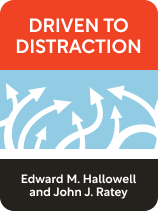

This article is an excerpt from the Shortform book guide to "Driven to Distraction" by Edward M. Hallowell and John J. Ratey. Shortform has the world's best summaries and analyses of books you should be reading.
Like this article? Sign up for a free trial here.
What is ADHD counseling? What forms of therapy can help manage ADHD?
Therapy is a common form of treatment for ADHD. Edward M. Hallowell and John J. Ratey’s book Driven to Distraction explain how seeking out therapy can benefit people with ADHD in the long run.
Keep reading to learn how ADHD counseling can help you.
Seek Out Therapy
According to the authors, it may help to have a therapist to guide you through the ADHD treatment process. The authors specifically recommend participating in psychotherapy and getting a coach to help you stay on track. Let’s first look at ADHD counseling and then at coaching.
In beginning ADHD counseling, it’s important to find a therapist who is knowledgeable about ADHD. This will make it easier for them to understand you and your needs and for you to bond with them.
(Shortform note: To find a therapist who’s knowledgeable about ADHD, you can begin by checking your health care plan for providers in your network that specialize in ADHD. If you don’t have a health care plan, you can also contact your local health department and ask about providers, or refer to directories from professional organizations.)
The authors say that group therapy can be particularly effective in treating ADHD in both children and adults. This is because, especially for children, many of the symptoms of ADHD will only present in a group setting and not in one-on-one therapy sessions. For instance, if the child struggles with sitting still in class, interrupting classmates or the teacher, and paying attention to a lesson, these symptoms may not come up in therapy unless it’s in a group setting.
(Shortform note: Because the symptoms of ADHD are more likely to show up in a group setting, it’s probable that many children who are homeschooled have undiagnosed ADHD since they’re educated in a one-on-one or small-group setting. Homeschooled children who receive an ADHD diagnosis may benefit even more from group therapy as it gives them the chance to practice social skills they would normally use at a traditional school.)
Further, group therapy helps adults meet others who understand them and their struggles. They can relate to and validate each other’s difficulties and can also teach each other about strategies they’ve found effective. According to the authors, ADHD often hinders connection with others, and strengthening connections can be one of the most effective treatments for the condition.
(Shortform note: In a recent article, Hallowell offered suggestions of additional avenues for cultivating connection besides connecting with other people. These include connecting with animals and nature, connecting with ideas and information, and connecting with activities you love. All of these, he says, contribute to a person’s happiness and confidence.)
According to the authors, ADHD can cause difficulties not only for the person with the condition but also for others close to that person. The distractibility of ADHD can make people believe that their loved one with ADHD doesn’t care about what they have to say, and the forgetfulness can make them seem thoughtless and rude.
An individual with ADHD may also become the scapegoat for all of the family’s problems, as their perceived lack of effort makes them an easy target. Similarly, a sibling may feel neglected if another child seems to get more parental attention than they do, and ADHD draws a lot of attention.
Couples and family therapy can be useful in helping everyone deal with the condition. However, by the time such therapy is pursued, it’s likely that resentment and hostility will have developed within the group. Families and couples should approach therapy with a willingness to change and a desire to make things better for everyone.
ADHD and Misplaced Blame
Misplaced blame can be a major source of distress for people with ADHD and their loved ones. Various aspects of ADHD, including memory issues, rejection sensitivity, and difficulty with social cues, can lead someone with ADHD to take on the blame for everything that goes wrong in their relationships. Self-blame becomes an even more natural response if a sibling, parent, or peer tells you that something is wrong and that it’s your fault.
On the other hand, a person with ADHD may be prone to laying the blame for their own symptoms on others. This can cause extreme tension in relationships, and it can even lead to abusive behavior. Group therapy with families and couples can be vital in helping all parties stop playing the “blame game” and work together toward positive change.
Coaching
The authors also advise using a coach—someone such as your therapist, a friend, or a loved one who can put in the time and effort to help you manage your condition. Coaching can be as simple as a 10-minute meeting or phone call every day to check in on what you need help with, what you have coming up in your life that may be impacted by your ADHD, and to provide encouragement.
(Shortform note: Evidence shows that coaching can help you manage your ADHD symptoms by increasing accountability for your actions, managing stress, and building self-confidence. Also, like therapy, coaching can be done in a group setting or one-on-one.)

———End of Preview———
Like what you just read? Read the rest of the world's best book summary and analysis of Edward M. Hallowell and John J. Ratey's "Driven to Distraction" at Shortform.
Here's what you'll find in our full Driven to Distraction summary:
- What ADD is, theories on the possible causes, and potential treatments
- How our knowledge of ADD has changed since the book’s republication in 2011
- Tips for how to minimize your negative symptoms and make the most of your strengths






